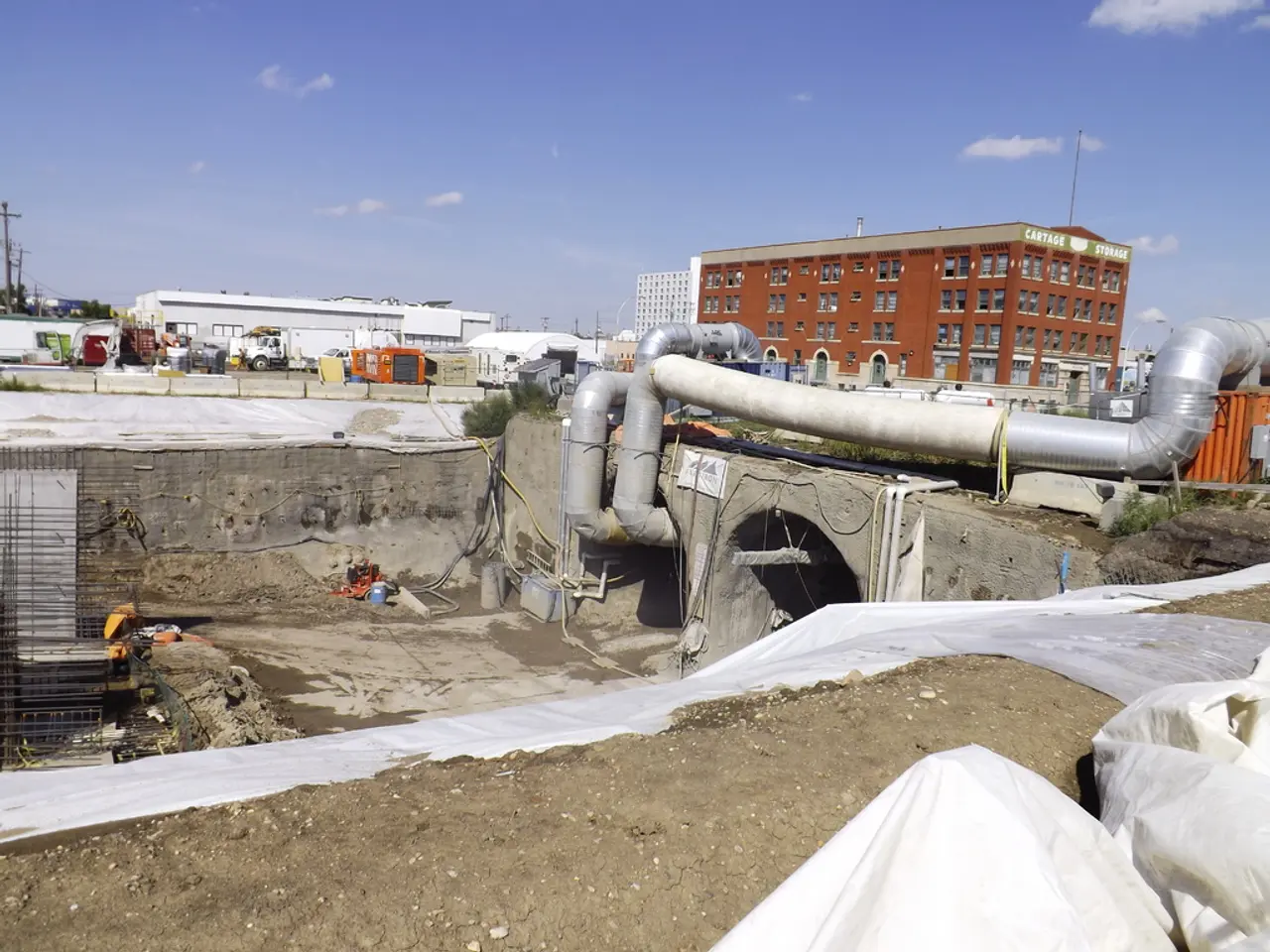Trump and Netanyahu Focus on Hostages Amidst Ongoing Gaza Military Operation's Progression
In the ongoing ceasefire negotiations between Israel and Hamas, a proposal for a 60-day truce is under consideration. The proposal, which is yet to be finalised, includes several significant components.
Hamas has agreed to hand over 10 living and 18 deceased hostages, as part of the hostage release clause. Israeli forces are expected to withdraw to a buffer zone along Gaza's borders with Israel and Egypt, a move that would pave the way for significant aid distribution. United Nations agencies and the Palestinian Red Crescent are poised to bring in and distribute the aid.
In a bid for a permanent resolution, Palestinian prisoners held in Israeli facilities would be released in exchange for hostages, though the exact number is not yet agreed upon. The proposal also includes negotiations for a permanent ceasefire during the 60-day period, although it does not guarantee a permanent end to the conflict.
The United States is playing a crucial role in these negotiations. President Donald Trump has guaranteed Israel's adherence to halting military operations during the ceasefire period, a move aimed at reassuring Hamas that Israel will not unilaterally resume fighting. The US has also informed mediators that it will not allow Israel to resume the war in Gaza, contributing to optimism about reaching a deal.
Prime Minister Benjamin Netanyahu met with US President Donald Trump on Wednesday, during his third US visit since Trump took office on January 20. The meeting's focus was on freeing hostages held in Gaza. Steve Witkoff, Trump's special envoy to the Middle East, expressed optimism for a temporary ceasefire deal by the end of the week, involving a 60-day ceasefire and the release of 10 living and nine deceased hostages.
However, challenges remain. Hamas has demanded an end to the war before it would free the remaining hostages, while Israel has insisted on the release of all hostages and the dismantling of Hamas before stopping the fighting. The conflict, which began in October 2023 with a Hamas attack on southern Israel, has resulted in approximately 1,200 deaths and 251 hostages taken, according to Israeli figures.
The United Nations estimates that most of Gaza's population of over two million has been displaced, with experts predicting that nearly half a million people face the risk of starvation. In Gaza City, people are seen carrying bodies in shrouds and women weeping. Airstrikes continue in Gaza, causing destruction and loss of life. Israel's retaliatory war has resulted in over 57,000 Palestinian deaths, according to Gaza's health ministry, and reduced much of Gaza to rubble.
Netanyahu expressed hope that Israel could expand the Abraham Accords, a series of peace treaties between Israel and several Arab states. As of now, around 50 hostages remain in Gaza, with 20 believed to be alive. Umm Mohammed Shaaban, a Palestinian grandmother, questioned the timing of a proposed ceasefire following the death of three of her grandchildren in an airstrike.
In Gaza City, another overnight airstrike occurred, resulting in no survivors found in a three-story house. The meeting between Netanyahu and Trump was not without its contentious moments, with Netanyahu discussing the consequences and possibilities of "the great victory we achieved over Iran" with the US President.
A delegation from Qatar, the host of indirect talks between Israeli negotiators and the Palestinian militant group Hamas, met senior White House officials before Netanyahu's arrival. The negotiations are a critical step towards bringing an end to the violence and suffering in Gaza, and the international community is closely watching the developments.
- In the ongoing ceasefire negotiations, the proposal includes a potential expansion of the Abraham Accords, a series of peace treaties with Arab states, by Prime Minister Benjamin Netanyahu.
- The food sector could greatly benefit from the proposed truce as United Nations agencies and the Palestinian Red Crescent are poised to bring in and distribute significant aid once Israeli forces withdraw.
- In the real estate sector, potential peace could lead to increased investments in Gaza's rebuilding efforts, given that much of the region has been reduced to rubble due to the conflict.
- Financial institutions might play a role in post-conflict reconstruction and aid distribution, with the prospect of a permanent resolution potentially attracting foreign investments.
- Meanwhile, the healthcare sector in Gaza has been severely impacted by the conflict, with the health ministry reporting over 57,000 Palestinian deaths and the general-news media reporting that nearly half a million people face the risk of starvation.








